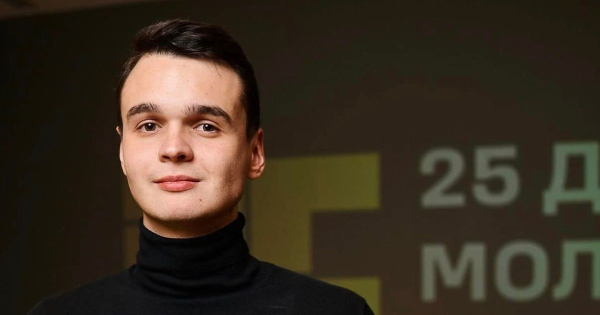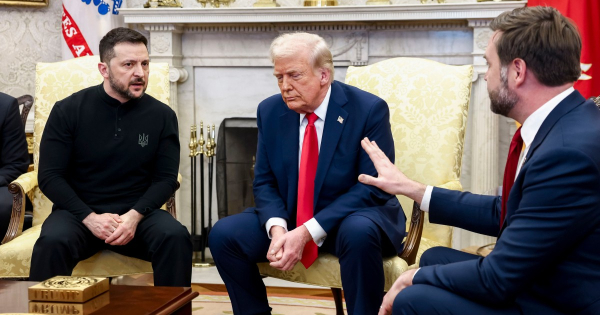
Any journalist working in and around the EU knows that receiving jargon-riddled press releases is a frustrating but inevitable hazard of the job.
A classic of the genre landed in our inboxes on Tuesday (21 November). Apparently, EU foreign ministers had adopted “conclusions on the Team Europe approach”. Stop press!
Usually, an opening sentence like that would be accompanied by a yawn and a lightning reflex to hit the ‘delete’ key.
But the phrase ‘Team Europe’ – an umbrella term that supposedly refers to the joint external efforts of the EU, member states, European Investment Bank (EIB) and the European Bank for Reconstruction and Development (EBRD) – has started to crop up with increasing regularity in recent years.
Initially, ‘Team Europe’ emerged as a key player in providing medical kits and vaccines – albeit many months later than they were needed – to developing countries. In June, ‘Team Europe’ claimed the credit for brokering a €785 million ‘cash for migrant control’ deal with Tunisia’s President Kais Saied.
As such, those who thought that European Commission President Ursula von der Leyen, together with Dutch and Italian Prime Ministers Mark Rutte and Giorgia Meloni, had done the diplomatic heavy lifting with Saied – who has since put the brakes on the deal by returning, without explanation, €60 million to the Commission – were mistaken.
Reading on, we learnt that ministers also believe that “the Team Europe approach increases the ability of the EU and its member states to work together with partner countries to address these and other global challenges, mitigate their consequences and allow a social, green and digital transition while upholding human rights, democracy, the rule of law and gender equality”.
Is there nothing ‘Team Europe’ can’t do?
And it gets better. “The Team Europe approach is a precondition for the successful implementation of the Global Gateway Strategy,” which will distribute €300 billion in infrastructure funding across developing countries.
All hail ‘Team Europe’!
Sarcasm might be the lowest form of wit, but there is a serious point here. One is that details about what ‘Team Europe’ actually is are distinctly thin on the ground.
There is no mention of it in the EU treaties. It is not accountable to Parliament or, indeed, any other institution. In truth, you could be forgiven that ‘Team Europe’ exists only in the minds of a handful of European Commission press officers.
The EU’s ‘democratic deficit’ exists, in part, because its institutions struggle to communicate what they do in a way that ordinary Janes and Joes can understand. The result of these gaps in understanding is apathy and, sometimes, distrust – resulting in millions of Europeans staying home on European election day.
So, a plea to EU civil servants: Reporting EU lawmaking and politicking is already complex enough without making it unintelligible. Unless you can explain what ‘Team Europe’ is and why it matters, please stick it in the bin marked ‘Eurojargon’.
Today’s edition is powered by Instagram Family Centre has resources to support parents
Family Centre on Instagram helps parents keep their family safer, with an Education Hub featuring expert advice and Supervision parents can set up with their teenagers. Learn more →
The Roundup
The European Parliament endorsed a beefed-up ‘right to repair’ law with a large majority on Tuesday, setting its position before negotiations with the Council representing the 27 EU countries.
Health and climate policy experts converged in Milan to participate at a roundtable event organised by Chiesi. The purpose of the event was to discuss the findings of a new survey, part of a report published by Economist Impact and supported by Chiesi, which focuses on how respiratory patients experience the adverse effects of poor air quality.
The next meeting of EU telecom ministers on 5 December will debate how to address the “market fragmentation and financial sustainability of the European telecommunication sector”, according to a discussion paper seen by Euractiv.
The Spanish presidency needs to conclude the technical preparation for the EU’s AI Act this week to request a revised mandate ahead of what is meant to be the last high-level meeting to reach a political agreement on the file.
The stand-off between Brussels and Budapest will continue after two EU Commissioners told MEPs that the EU executive is still not ready to unlock billions of euros in recovery funds for Hungary.
The German parliament’s budget committee has delayed a meeting originally set for Thursday (23 November) to finalise the 2024 budget, following a court ruling that cancels €60 billion off a climate fund and could have broader implications for other public spending.
Israel and Hamas agreed on Wednesday to a ceasefire in Gaza for at least four days, to let in aid and release at least 50 hostages captured by militants in exchange for at least 150 Palestinians jailed in Israel.
A new draft of the European Cloud Services scheme, seen by Euractiv, was circulated ahead of a meeting of the European Cybersecurity Certification Group on Monday, with some tweaks on the controversial sovereignty requirements.
Don’t miss this week’s Green Brief: The four years that revolutionised EU climate policy; and the Health Brief: Antibiotics and their invisible threats.
Look out for…
- Parliament votes on the implementation of the EU-UK Trade and Cooperation Agreement in Strasbourg Thursday.
- Commission President Ursula von der Leyen participates in the EU-Canada summit in St. John’s Newfoundland and Labrador, Canada Thursday-Friday.
- Education, Youth, Culture and Sport Council meets in Brussels Thursday-Friday.
- Informal meeting of equality ministers in Pamplona Thursday-Friday.
Views are the author’s
[Edited by Alice Taylor/Nathalie Weatherald]
Source: euractiv.com



